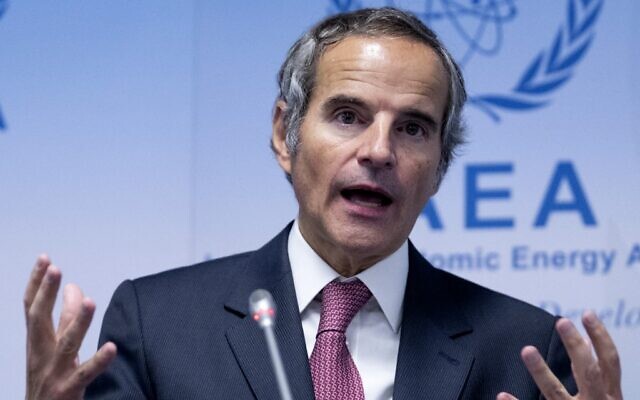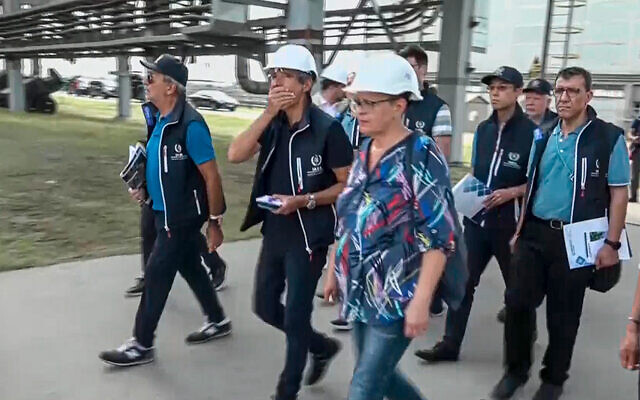Iran expected to avoid censure for latest nuclear steps after ‘concrete’ commitments
VIENNA, Austria – Iran will evade another rebuke by UN nuclear regulators after making “concrete” pledges over the weekend to be transparent following the discovery of near-weapons-grade particles, diplomats told AFP on Monday.
The development comes after the head of the International Atomic Energy Agency (IAEA), Rafael Grossi, received assurances from Iran that surveillance cameras would be reconnected at several nuclear sites and the pace of inspections would be increased.
On Saturday, Grossi returned from a two-day visit to Tehran, which was seeking greater cooperation in its nuclear activities after discovering uranium particles enriched to near weapons-grade levels.
Three Western diplomats told AFP on the first day of the Vienna-based IAEA Board of Governors meeting that no new resolution criticizing Iran over its nuclear program is planned.
“But it remains to be seen whether anything agreed in Tehran will lead to any real progress,” warned a Western diplomat.
In November, Iran was reprimanded for not cooperating with the agency.

Rafael Grossi, Director General of the International Atomic Energy Agency, addresses journalists after the meeting of the IAEA Board of Governors November 16, 2022 at the agency’s headquarters in Vienna, Austria. (Joe Klamar/ AFP)
On Monday, Grossi denied the impression that he had received nothing but empty promises from Iran over the weekend.
These are “not promises, we have certain agreements that are concrete,” he told reporters in Vienna.
“I was just as frustrated as a lot of other people, perhaps most frustrated when there’s a lack of results,” he added.
“We appear to be moving onto firmer ground,” he said, adding that the agency would “proceed with caution, of course.”
Grossi welcomed “a significant improvement” in his talks with the Iranian government last week.
He said the measures he agreed with Iran should come into effect “very soon” after a technical meeting over the trip to Tehran.

International Atomic Energy Agency (IAEA) Director Rafael Grossi, Head of Mission, center in white helmet, and IAEA members walk during the inspection of the Zaporizhzhia nuclear power plant in Enerhodar, southeastern Ukraine, September 1, 2022. (Press service of the Russian Defense Ministry via AP )
In his series of meetings with Iranian officials, Grossi met President Ebrahim Raisi.
Tehran also said it had agreed to further inspections at Fordo’s underground facility, where near-weapons-grade uranium particles were found.
A confidential IAEA report provided to AFP detailed that uranium particles enriched up to 83.7 percent – just under the 90 percent needed to make an atomic bomb – had been detected.
Iran denies it plans to acquire nuclear weapons and says it has made no attempt to enrich uranium beyond 60% purity.
In January, the IAEA’s Grossi said Iran had “stocked up enough nuclear material for multiple nuclear weapons.”
Talks between Tehran and world powers to revive a landmark 2015 deal aimed at curbing Iran’s nuclear program in exchange for sanctions lifting had stalled since last year.
The deal Iran struck with Britain, China, France, Germany, Russia and the United States collapsed after Washington’s unilateral withdrawal in 2018 under then-President Donald Trump.
